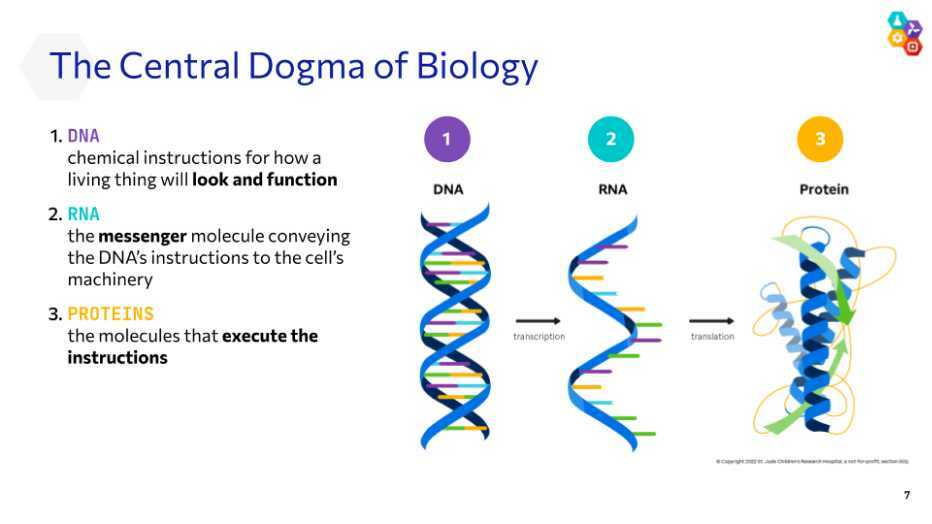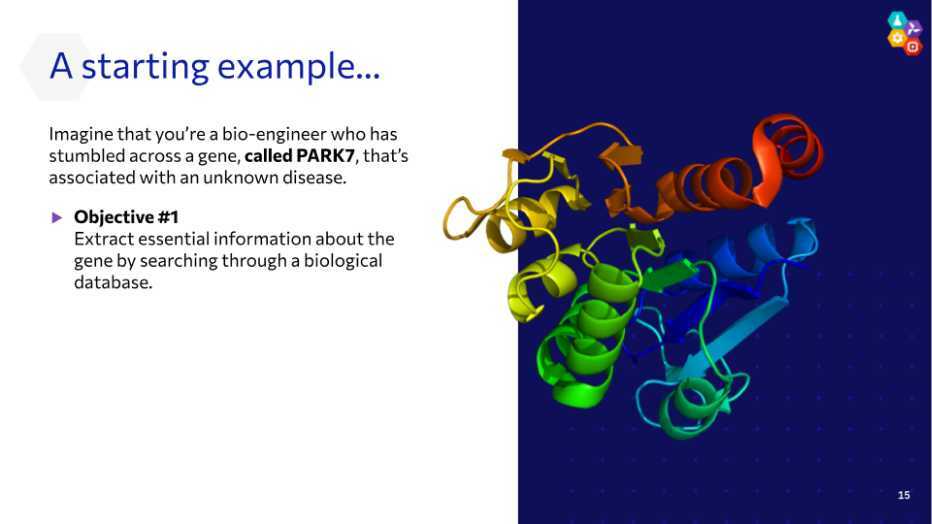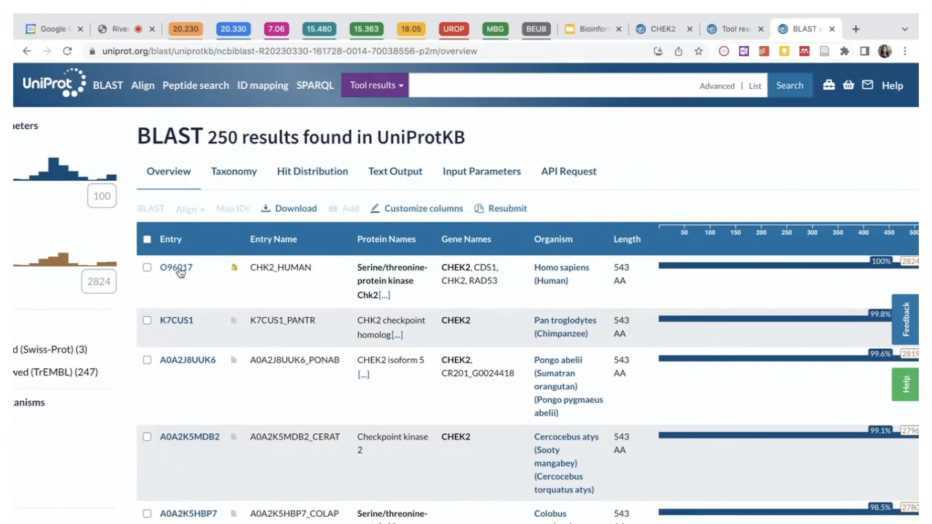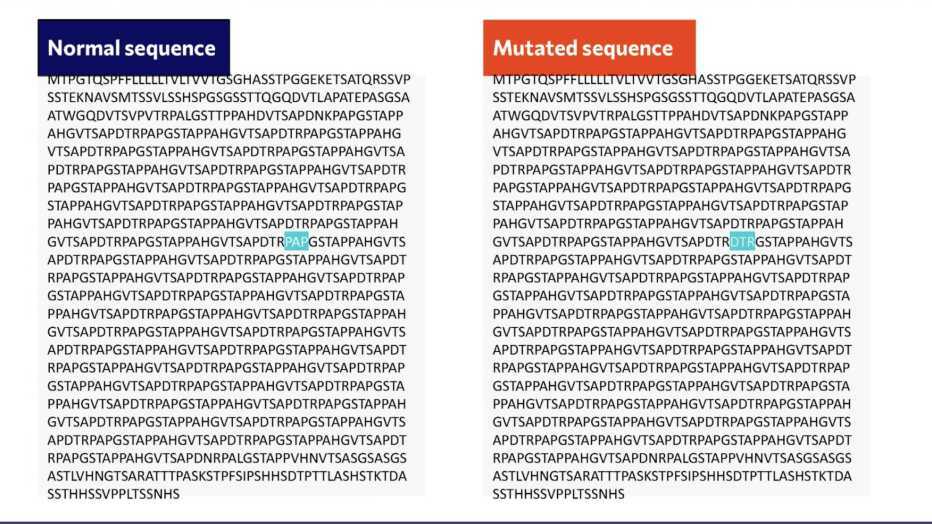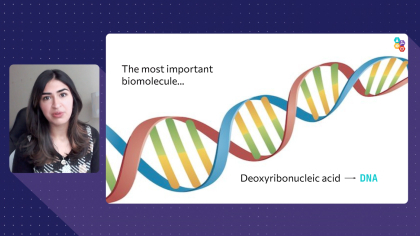In an era of DNA sequencing and new molecular biology techniques, scientists have become inundated with biological data. The interdisciplinary field of bioinformatics combines biology, computer science, mathematics, and statistics to overcome this challenge by creating methods of analyzing the wealth of biological data publicly available in databases, such as UniProt and NCBI.
In this lab, students will receive a hands-on introduction to this cutting-edge field, learning the importance of using novel technologies to diagnose and treat diseases with a genetic basis. Using a brief list of symptoms and their newfound knowledge regarding bioinformatics, students will diagnose two patients, Patient X and Patient Y, while compiling information about the proteins involved in their respective diseases.
Students will:
- Engage in the engineering design and iterative process
- Analyze complex real-world problems through a biological lens
- Follow specific criteria in order to problem solve by making informed and specific search queries
- Discover and understand the importance of bioinformatics and sequencing to diagnose and treat diseases
-
Lab intro video
25 minutes
-
Lab type
Digital tools only
-
Live Q&A session and wrap up with
College Students & Professional Engineers
Classroom Tools & Resources
Get access to all of the presentation materials, workbooks and resources to run the Genetics lab in your classroom.
Lab Intro Videos
Get our engineer’s introduction to the lab topic and learn more about the lab activity.
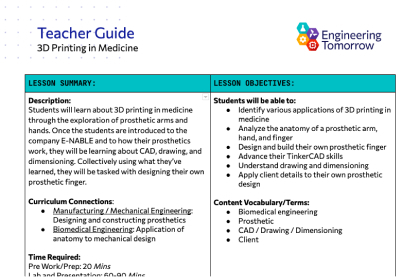
Teacher Guide
Download the teacher guide to prepare for the lab and get access to pre-work, instructions and troubleshooting advice.
View
Student Workbook
Access the interactive student workbook that includes questions and assessments throughout the lab presentation.
View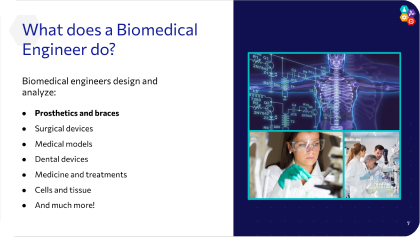
Engineer’s Presentation
Preview the full lab presentation and save the link so you’re ready to share the presentation on lab day.
ViewMeet the lab intro host

Sarah Syed
Engineering Student
Sarah is a fourth-year undergraduate at MIT majoring in Biological Engineering and Business Management. At MIT, she has studied the mechanisms responsible for antibiotic resistance and developed nanoscale contrast agents for early cancer detection. Now, at the Center for Gynepathology Research, she is investigating novel treatment strategies for endometriosis, a morbid gynecological disease affecting 10% of reproductive-aged women worldwide. Leveraging her diverse experiences as an engineer, investor, and advocate, Sarah aims to start a biotechnology company developing accessible interventions for historically overlooked diseases affecting women’s health.

Sarah is a fourth-year undergraduate at MIT majoring in Biological Engineering and Business Management. At MIT, she has studied the mechanisms responsible for antibiotic resistance and developed nanoscale contrast agents for early cancer detection. Now, at the Center for Gynepathology Research, she is investigating novel treatment strategies for endometriosis, a morbid gynecological disease affecting 10% of reproductive-aged women worldwide. Leveraging her diverse experiences as an engineer, investor, and advocate, Sarah aims to start a biotechnology company developing accessible interventions for historically overlooked diseases affecting women’s health.
WHY ENGINEERING TOMORROW

Labs are always conducted with no cost to schools, teachers or students.

Hands-on student activities get students excited and keep them engaged.

Cutting-edge instruction designed by professional engineers.

Unlock opportunities for kids all over the country.



